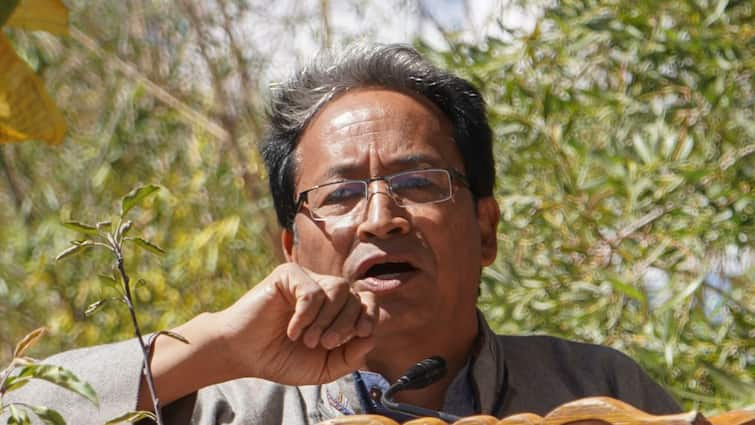Prominent Ladakh activist and educator Sonam Wangchuk has been arrested under the stringent National Security Act (NSA), just a day after he said he was “happy to be arrested anytime for this cause.” The move comes amid mounting tensions in the region, where protests for statehood and inclusion in the Sixth Schedule have turned violent.
According to government sources cited by NDTV, Wangchuk is likely to be shifted out of Ladakh either tonight or tomorrow morning. The NSA allows for long periods of preventive detention without the option of bail.
Authorities also suspended internet services across Ladakh following his arrest, aiming to curb the spread of rumours and misinformation.
The development follows two days of unrest in the otherwise peaceful Himalayan desert. Wangchuk, a well-known climate activist and education reformer, had been on a two-week hunger strike along with other demonstrators pressing for Ladakh’s statehood. But on Wednesday, the protests spiralled into violence, leaving four people dead. Wangchuk, who later called off his strike as tensions grew, was accused by the Ministry of Home Affairs of fuelling the unrest.
The arrest has triggered sharp political reactions. Jammu and Kashmir Chief Minister Omar Abdullah called the move “unfortunate” and accused the ruling BJP of failing to deliver on its promises.
“It is unfortunate they have arrested him. BJP will never fulfil their promises. We are not justifying violence, but BJP should answer why they let such a situation develop,” Abdullah told ANI.
Congress also condemned the arrest, describing it as unnecessary and politically motivated. Senior Congress leader Ghulam Ahmad Mir said Wangchuk had never endorsed violence and accused the government of trying to mask its own failures in Ladakh.
“His arrest is unwarranted. There was no need to take this step; he is the most respectable person, who has always believed in Gandhian ideology. He dedicated himself for the interests of Ladakh,” Mir told reporters in Anantnag.
Wangchuk’s detention under the NSA marks a dramatic escalation in Ladakh’s political turmoil, raising fresh questions about how the government plans to address the region’s growing demand for autonomy.



